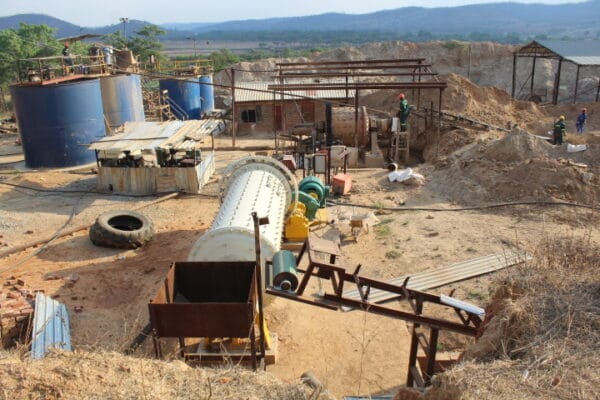Green Transition: ASM should not be left behind

As the world is moving towards the adoption of a green energy future, the Artisanal and small-scale mining (ASM) sector should not be left behind in terms of getting access to mining fossil fuels and participation in green energy minerals such as lithium, copper, nickel and other minerals that are essential for non-carbon emission future.
Rudairo Mapuranga
While the Transition to green energy is essential to combat climate change, fossil fuels should not be abandoned but exploited while the demand and market for them is still huge.
Recently Zimbabwe discovered a huge potential for oil and natural gas with the country also rich in coal with over 600 million tonnes of proven resource.
Despite climate change activists calling third world countries’ investment in fossil fuel to cease if there is any chance of limiting global warming to 1.5 degrees Celsius, the point beyond which climate impacts are expected to worsen significantly. Experts have been calling for third-world countries to exploit their fossil fuels to fund the adoption of green energy. They believe that third-world countries are not yet ready at the moment to go green as this would leave the government coffers with a very huge debt therefore what needed to be done was to exploit the fossil fuel at their disposal to fund green energy.
This therefore means that Zimbabwe should accelerate its fossil fuel exploitation for it to be able to fund the green energy future therefore the ASM should be part of the exploitation of coal and other minerals that are deemed a hazard to climate.
Individuals within the ASM sector must be involved throughout the green energy revolution process to ensure changes are in tune with realities on the ground at the same time ensuring that small players adopt future technologies in mining.
To create long-term sustainable ASM green energy strategies, a number of things need to be considered. These include creating a platform for positive and regular dialogue between ASM stakeholders and government to provide a conduit for consultation on changes, informing dialogue based on research on mining communities and establishing a co-created roadmap outlining interventions with input from various stakeholders, including non-mining ones, at all levels.
The Mines and Minerals Act states that, the rights to explore and mine coal, mineral oils or natural gases may only be acquired under special grants which are issued in two phases namely, the exploration stage and mining stage. It is expensive for small players to get a special grant for coal mining. Experts have therefore been calling for the government to relax this law to ensure the ASM are partly empowered to extract fossil fuels such as coal.
According to mineral economic expert Mr Lyman Mlambo the ASM should be empowered to be part of the green transition before fossil fuels are phased out completely from the market. He said the resource should be extracted so that it will not be left useless for future generations.
“The discovery of gas amidst the thrust towards greener technology isn’t an issue at all for a number of reasons:
- We still have more than two decades, perhaps more than 3 decades, before fossil fuel can be phased out completely from the market, so the strategy is to accelerate our exploitation while demand is still there – remember a resource is a resource because there is demand for it;
- these resources belong to both this generation and the next generations right now when they still got value, we don’t want to leave something useless to the next generations when we had the opportunity to convert it into income before it became obsolete;
- there are many countries whose economies are dependent on fossil fuel and wars are actually still being fought today for that resource, so the world is still so much interested in it;
- we can actually use the proceeds from fossil fuel to fund the development of cleaner and greener energy – that happens to be one of the wisest things to do;
- another is to invest in offshore investments that can earn interest for the country in forex and the fund can expand overtime to catalyse the long-term development of Zimbabwe;
- an interesting thing to note is that the global north is the one with the capital that is being invested into fossil fuel in the global south, especially in Africa – that should tell you something – where is Invictus Energy based?;
- Zimbabwe needs energy NOW to meet its current energy deficits.” Mlambo said.
It is expected that the production of minerals such as graphite, lithium, and cobalt could increase by nearly 500% by 2050 to facilitate the transition to net zero. Certain minerals have already seen a significant jump in production, such as lithium, where production has risen from 28,100 tonnes in 2010 to an estimated global total of 82,000 tonnes in 2020.
As the production and use of these metals and minerals proliferate, the importance of a circular supply chain will become more apparent, as most renewable and low-carbon technology uses recoverable metals. This offers the opportunity for the recycling and re-purpose of technology such as electric vehicles (EV) at the end of their operating life.


